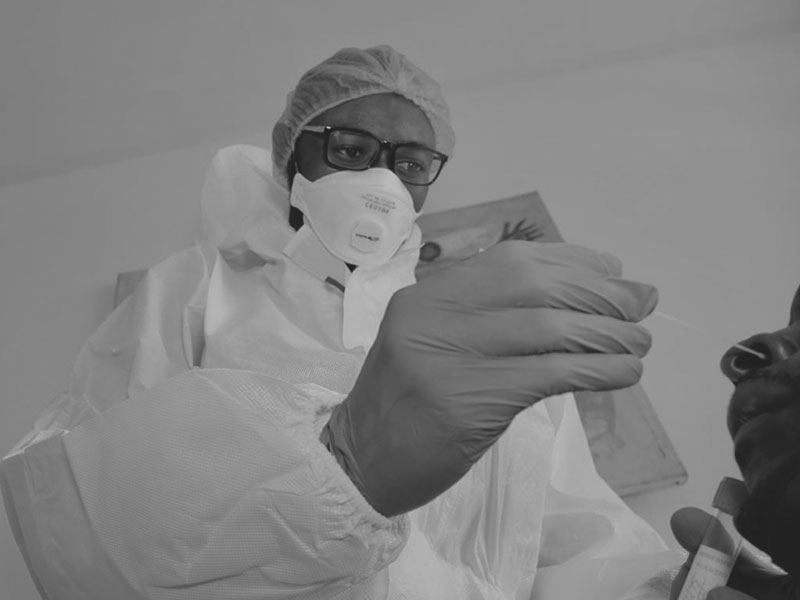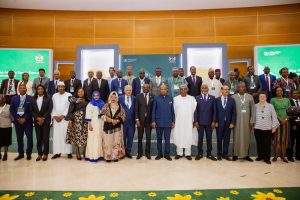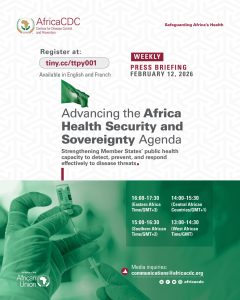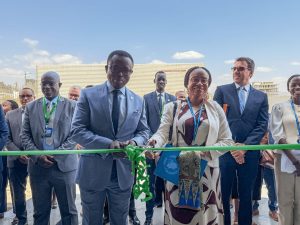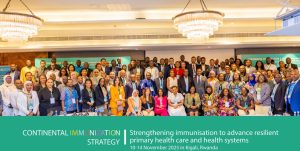Africa CDC’s two years of training in Laboratory Quality Management combining human, animal and environmental health protection across the continent has led to institutions sharing resources and sparked discussion to introduce the training into university curricula.
The latest Laboratory Quality Management Systems (LQMS) utilizing the One Health approach brought together 29 participants from 15 African Union member states representing animal and human health laboratories in Accra, Ghana, from 15-19 July 2024.
“By empowering laboratory leaders with LQMS knowledge, Africa CDC aims to ensure comprehensive implementation across all African Union countries,” said Donewell Bangure, Principal Technical Officer of Laboratory Systems at Africa CDC.
The Africa CDC Lab Leadership training on LQMS using the One Health approach is critical for Africa to enhance laboratory leaders’ capacity to ensure high-quality practices for accurate disease diagnosis and response.
“If laboratories are not properly trained on LQMS, this can hinder effective disease detection and response efforts. By focusing on the interconnectedness of human, animal, and environmental Health, the training equips laboratory leaders to address these challenges,” said Bangure.
Implementing robust LQMS practices based on the One Health approach can improve testing quality, foster collaboration among sectors, and enhance early detection and response to health threats. He added that this ultimately empowers African laboratory leaders to strengthen health systems, protect public Health, and contribute to the overall safeguarding of the African continent.
Bangure said there is a significant gap in the implementation of Quality Management Systems using the One Health approach, and most of the previous interventions were mainly focused on the laboratories in silos. Therefore, there is a need to ensure that laboratories from different sectors implement programs together.
“The COVID-19 pandemic exposed a lack of oneness in the work being done by the laboratories from different sectors, hence the need to work together. Work needs to be done, especially on studies that focus on the importance of implementing robust QMS practices based on ongoing One Health research,” he said.
Bangure noted that initiatives should continue to explore the impact and effectiveness of integrating One Health into Laboratory Leadership and QMS practices in Africa. “As Africa CDC, this is also an area we need to support,” he said.
Dr Eugene Bwalya, a veterinarian surgeon from the University of Zambia, said the training has improved interconnection and resource sharing among labs and enhanced lab networking in different member states. Dr Bwalya said the training programmes had initiated discussions to incorporate LQMS training with the One Health approach into university curricula.
Bangure said that, unlike past programmes, the Accra training brought individuals from East, Southern, and West Africa together, allowing for valuable experience sharing across different regions.
The next training in August will be for French-speaking countries in Senegal. He said the overall objective is to continue expanding the reach and impact of the training program to strengthen laboratory quality management systems across Africa and to have member states fully adopt and take ownership of the training while integrating them into university curricula for sustainability.
“By embedding these programs in educational systems, a culture of excellence in laboratory quality management and One Health practices can be fostered, ensuring lasting commitment to strengthening public health systems across Africa,” he said, adding that the goal is for member states to internalize and institutionalize these trainings, ensuring their continued success and widespread implementation.
Bangure said there is an urgent need to roll out LQMS training in-country, encourage domestication of the LQMS training using the One Health approach, and increase the pool of LQMS trainers who will help cascade these training in countries.
There is also a need to mobilize additional resources for LQMS capacity building and create a platform for experience sharing and progress on LQMS implementation across countries. A “Quality Week for Africa” proposal has also been tabled.
Africa CDC has been supported by the Africa Society for Laboratory Medicine (ASLM) from developing the training curriculum to actual training.
“We have collaborated closely in developing the Africa CDC LQMS curriculum using the One Health approach, and we are dedicated to prioritizing the cascading of this program in member states,” said ASLM Chief Executive Officer, Mr Nqobile Ndlovu. “Together, we can strengthen laboratory systems, improve public health outcomes, and advance global health security,” he added.

